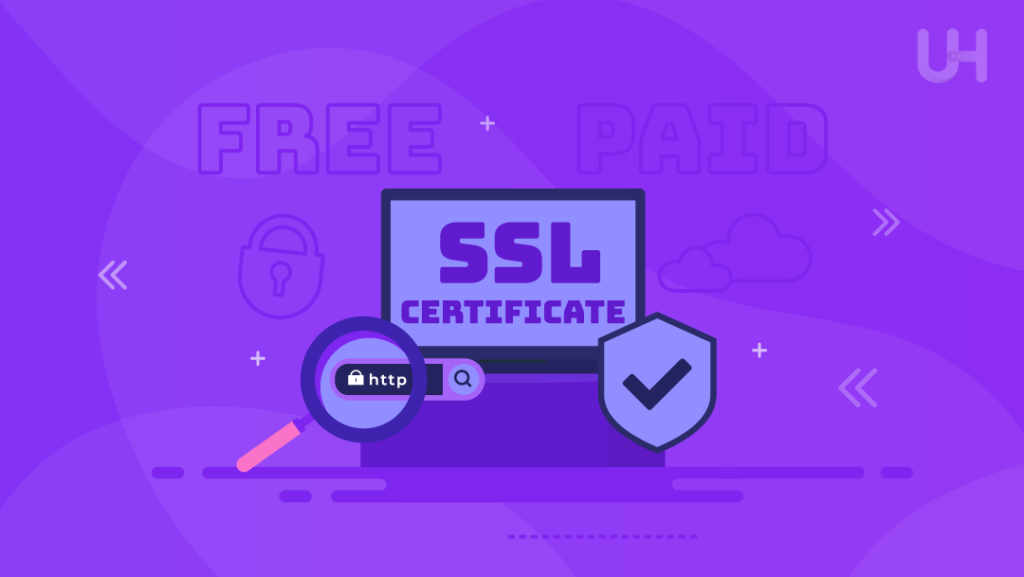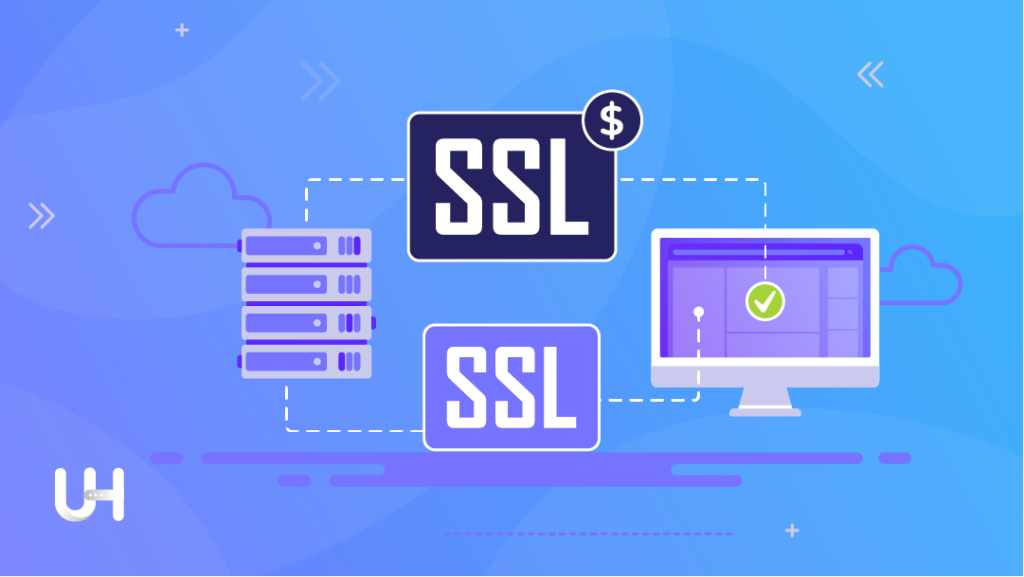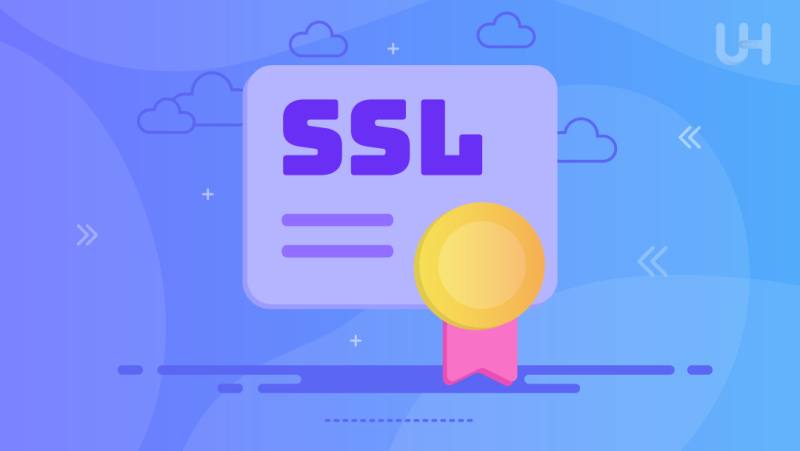Securing online interactions has become imperative in the digital arena, and SSL (Secure Socket Layer) certificates play a crucial role in this mission. As we delve into the world of SSL security, we discover various types of SSL certificates, each designed to cater to specific needs, underlining their significance in the digital landscape.
This guide will explain the basics of SSL certificates, from the basic Domain Validated (DV) to Extended Validation (EV). Ultimately, this article will give website owners or internet users the insights they need to understand the levels of SSL security and make the right choice for a safer online experience.
What is an SSL Certificate?

An SSL certificate ensures that a website has HTTPS encryption. This encryption creates a connection between the user’s browser and the web server for communication while protecting it from being intercepted.
An SSL certificate stores your website’s public key, domain name, issuing certificate authority’s digital signature, and other vital information. This certificate acts as a shield, preventing on-path attacks, MitM (Man in the Middle) attacks, and other potential vulnerabilities that a website might face, thereby ensuring a secure online environment.
Different Types of SSL Certificates
The types of SSL certificates can be distinguished based on the number of domains and subdomains they cover, as well as their validation level. Understanding these distinctions will empower you to make informed decisions about the type of SSL certificate that best suits your needs. The following are the four different SSL cert types.
Single-Domain SSL Certificates
This certificate type ensures the security of a singular domain and all its associated pages. However, it does not extend its protection to affiliated subdomains.
For example, an SSL certificate for the domain “ultahost.com” will provide security for all pages linked to this domain, like “ultahost.com/blog/”. However, it will not encompass any subdomains, such as “bill.ultahost.com”.
Wildcard SSL Certificates
Much like a standard, single-domain SSL certificate, a Wildcard SSL certificate secures a single domain. While a single-domain SSL would lock down that one Ulta domain only, a Wildcard extends its security across any and all subdomains related to that domain. With a Wildcard SSL certificate, you can simultaneously encrypt several subdomains.
Multi-Domain SSL Certificates
This type of certificate is the complete opposite of a Wildcard SSL certificate. A multi-domain SSL certificate secures multiple domains but leaves out the related subdomains. A multi-domain SSL is also referred to as a Unified Communication Certificate (UCC) and Subject Alternative Name (SAN).
Multi-Domain Wildcard SSL Certificates
As the name suggests, this type of SSL certificate is a combination of both Multi-domain and Wildcard SSL certificates. Thus, by getting this certificate, you can secure multiple domains and all your subdomains.
Get The Best SSL Plans For Your Website Security!
Secure your website with an SSL certificate from UltaHost! UltaHost provides powerful servers with high-end resources that will guarantee resource exclusivity. Choose the best one based on your needs!
Types of SSL Certs Validation Levels
Certificate authorities (CAs) determine the level of SSL certificate validation. They assess the authenticity of your business before issuing the SSL certificate. SSL certificates have the following three distinct validation levels.
Domain Validation (DV) SSL Certificates
As the simplest form of SSL certificate validation, DV merely confirms the ownership of the domain. The usual process involves email verification with no further investigation by the Certificate Authority (CA). This is the quickest and most budget-conscious way to obtain an SSL certificate.
Organization Validation (OV) SSL Certificates
Stepping up the level of validation, OV mandates domain validation but adds the extra step of the CA double-checking your business details. Your domain ownership, as well as the fact that your business is legally registered, will be verified. OV certificates provide a more credible and more trusted site than DV.
Extended Validation (EV) SSL Certificates
For business websites, in particular, EV is the all-out rock star of trust and credibility. EV validates the identity of a business with a particularly extensive background check that’s done by the CA. Browsers can display the business name of EV SSL certificates, often in green, before the domain name. This provides users with the highest level of visibility and assurance when they are on an EV site.
Importance of an SSL Certificate

Even if you are running an e-commerce website with the best e-commerce hosting, you will still require an SSL certificate to prove your authenticity to the visitors. It acts like a seatbelt for websites. The three main reasons for the importance of an SSL certificate are as follows.
Data Protection and Visitor Trust
One of the primary purposes of an SSL certificate is to encrypt and secure data transmitted between users and the web server. This data is vulnerable to cyber threats like identity theft, hackers, and phishing. Users visiting your website should avoid seeing a “your connection is not private” warning, as this is one of the most common SSL certificate errors.
A valid SSL or TLS certificate plays a crucial role in preventing such errors. In simpler terms, it shows your visitors that they can make secure transactions or share sensitive information on your website. It’s an assurance you give your visitors that their credit card numbers, IDs, email addresses, and passwords are all safe with you. As a result, SSL increases trust between you and your visitors.
Authentication and Integrity
How can you tell if the website is really the one it says it is and not some fake trying to steal your info? Here’s where SSL, the little padlock, and the “s” at the end of HTTPS come in. Without an SSL certificate, even the best website hosting can be at risk. When you have an SSL certificate on your website, it proves that your website is the real one, not some copycat trying to trick you.
This makes it much harder for phony sites to steal the sensitive info that you send to the server. SSL also protects information as it travels from your computer to the website’s server. It’s like sending a letter in a special envelope, you know if someone tried to steam it open because the envelope would look funny. That’s because SSL locks the code on your sides so that your information gets where it’s going without interference.
Improves Search Engine Ranking
To make online surfing more secure, Google and other search engines have made this a priority and are flagging unsecured websites. One of the changes that came in with this new policy is their recommendations for websites to have SSL-encrypted websites instead of the standard HTTP in their URLs.
HTTP stands for Hypertext Transfer Protocol and refers to the process through which data is transferred from your computer to the website you are on, but with the SSL, or Secure Socket Layer, added, it changes to HTTPS, which is Hypertext Transfer Protocol Secure. An SSL certificate has become essential for businesses that want to appear on the first page of Google search results.
How Do SSL Certificates Work?
SSL certificates are data files critical in creating a secure link between your site and its web server. They act according to the principles of public key cryptography. Your server has a private key that is used for encrypting the messages sent to your site, which only the public key inside the certificate can decrypt. Reputable Certificate Authorities (CAs) issue these certificates after they have verified that your site’s server is theirs and that its certificate details are fit for secure online communication.
Conclusion
Enhancing online security covers a range of different tasks, and getting the right SSL certificates is the first and the most obvious one. SSL certificates carry out the same basic roles, from basic Domain Validated (DV) versions to swanky Extended Validation (EV) types. They encrypt the data passing between your computer and the websites you use and help build trust with users. If you’re running a business, they can greatly improve your search engine rankings, too. So, whether you’re a website owner seeking the best SSL deal or just curious how the system could better protect you while browsing the web, this article is your guide.
Along with securing your site with an SSL certificate, the speed of the website plays an important role in retaining visitors. Get fast VPS hosting from UltaHost for reliable and instantaneous access.
FAQ
What is SSL certificate used for?
An SSL certificate secures the communication between a user’s browser and a website’s server, encrypting sensitive information like passwords and personal data.
Is SSL certificate necessary?
Yes, an SSL certificate is necessary for ensuring secure and encrypted data transmission, building user trust, and improving search engine rankings.
Is there a free SSL certificate?
Yes, there are free SSL certificates available, such as those provided by Let’s Encrypt. These certificates offer basic encryption and are suitable for many websites.
How often should I renew my SSL certificate?
SSL certificates typically need to be renewed annually. It’s essential to keep track of the expiration date and renew in a timely manner to maintain continuous security for your website.











